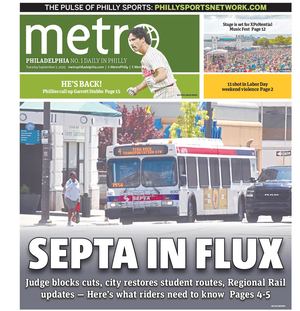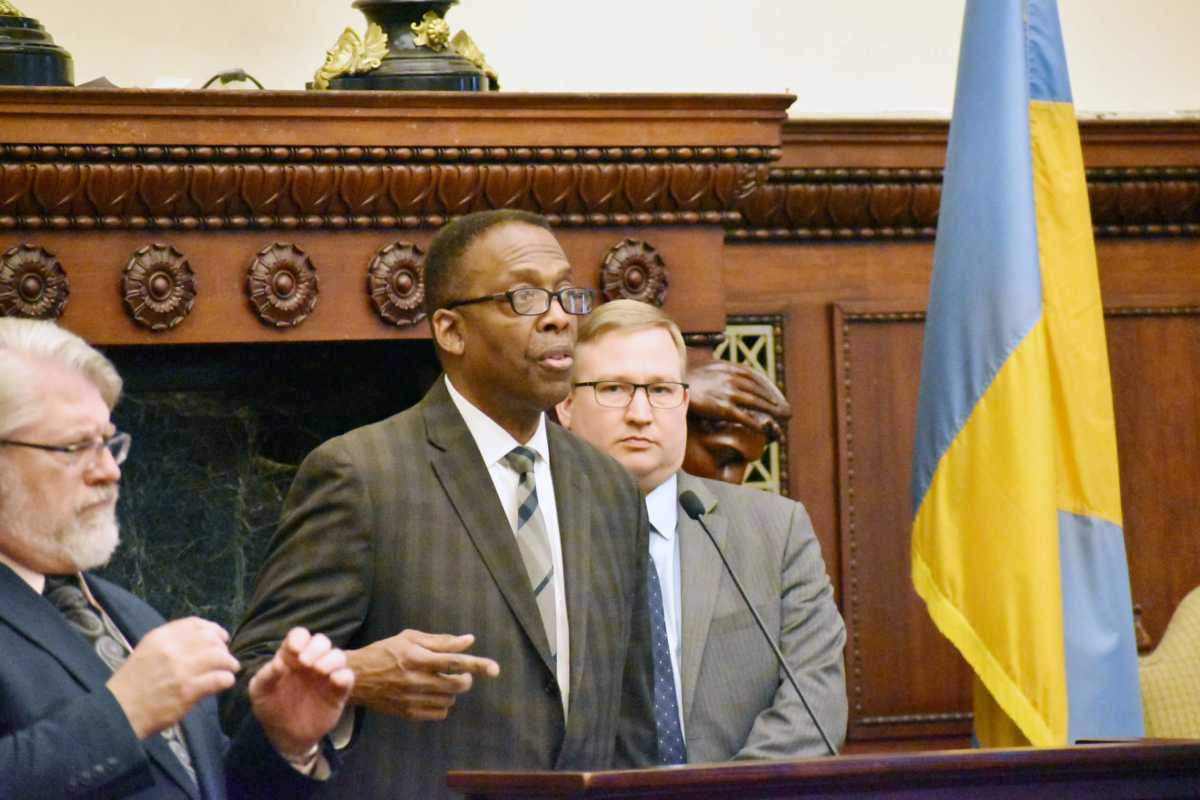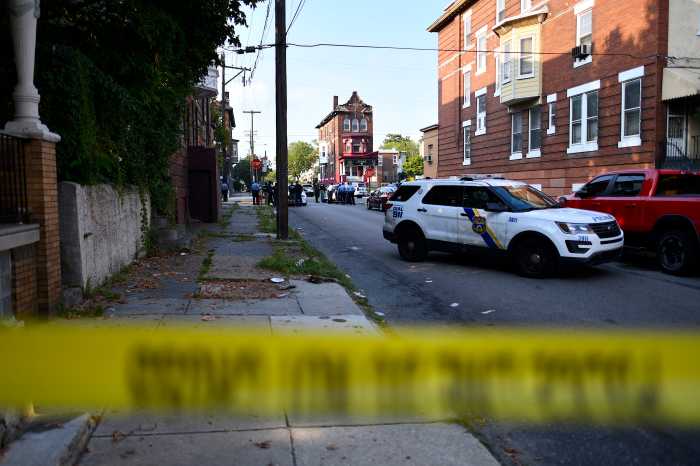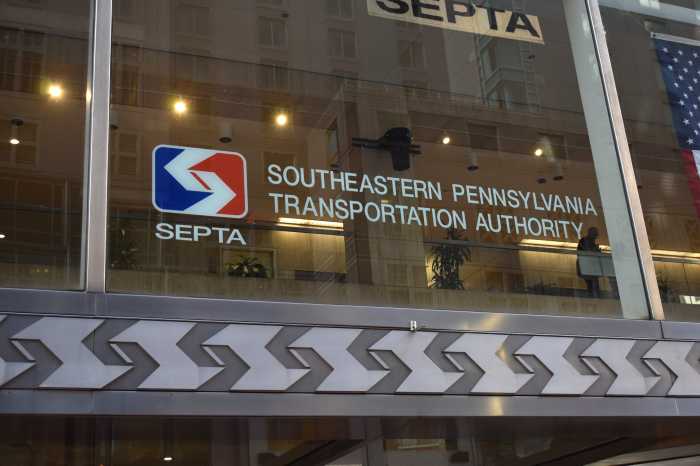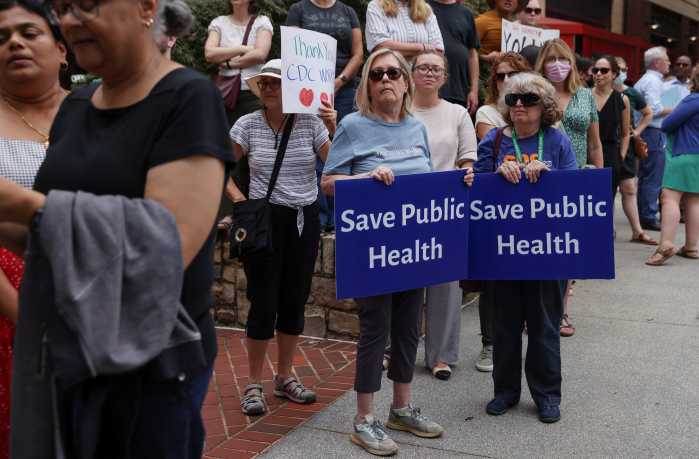City Council advanced legislation allowing Mayor Jim Kenney’s administration to spend $85 million to fight the novel coronavirus, even as some members questioned the city’s plan to help small businesses deal with the pandemic.
Managing Director Brian Abernathy said the money will be used for a variety of purposes, including the staffing of essential personnel, purchase of personal protection equipment and leasing of quarantine sites.
“It’s likely we’ll have to go back for some more,” Kenney said. “We thought that this was an appropriate number to address the initial impacts of the dilemma.”
The emergency spending bill, which also provides an extra $400,000 for council’s own public awareness campaign, could be approved as early as next Thursday.
No members of the public or press were allowed to attend the hearing, though it was broadcasted on television and streamed live online.
Several council members raised concerns about the administration’s COVID-19 Small Business Relief Fund. Details on the $9.25-million program were released earlier this week.
As previously reported by Metro, businesses with revenue under $500,000 a year are eligible for a $5,000 microgrant, and those that gross between $500,000 and $3 million can receive grants of up to $25,000. Companies with revenues between $3 and $5 million are being offered zero-interest loans of up to $100,000.
Councilwoman Helen Gym questioned whether businesses in the highest tier are really small businesses, and Councilwoman Maria Quinones-Sanchez said other cities have instituted programs aimed at helping businesses that pull in $1 million a year or less.
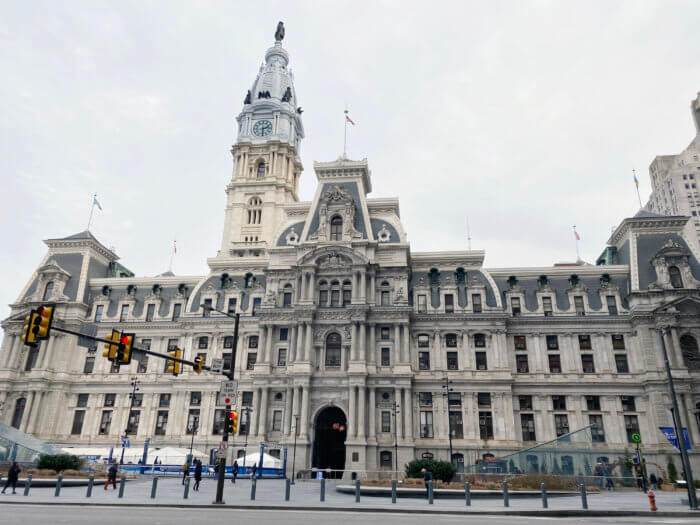
So far, 1,800 applicants have filed to receive money under the program, and the vast majority, over 1,000, have been for microgrants, Kenney said. Only about 60 businesses have applied for the no-interest loan, he added.
Those numbers were also brought up by Council Majority Leader Cherelle Parking during the hearing.
“I don’t want anyone thinking that this council is about to vote on a bill in which the majority of the funds and the revenue is not going to be geared to microloans for those that are considered small businesses,” she said.
Councilwoman Jamie Gauthier said council should work on rent subsidies and a basic income program to make sure people, not just businesses, are aided.
“I’m very concerned that we aren’t doing more thinking about how to support individuals and workers,” she said.
Meanwhile, Councilman Isaiah Thomas said he’s worried about making sure the money is well-spent, and that companies don’t take advantage of the program.
“We are really concerned about how those businesses will be selected, how we hold those businesses accountable and ensure that those dollars matriculate down to the workers,” he said during the hearing.
Council President Darrell Clarke said the Kenney administration is aware of the concerns and that further discussions will take place about the relief fund. Council will be represented on a team that reviews the applications, he said.
Quinones-Sanchez, who chairs the appropriations committee, said the hearing was just the start of what will likely be a long process over COVID-19-related funding.
The $400,000 provision, which was added to the bill during the hearing, will be used by council to advertise information about the virus and send mailings to city residents, according to a memo about the legislation.
“You’re going to see an extremely aggressive social media program, one like you’ve probably never seen before,” Clarke told reporters.
He and Quinones-Sanchez said they are still seeing people congregate in their districts. The campaign would focus on the importance of social distancing, Clarke said.
Clarke tried to dispel notions that council and the mayor’s office aren’t on the same page about messaging to residents. He argued district council offices have a unique ability to reach people who may not be following the news.
